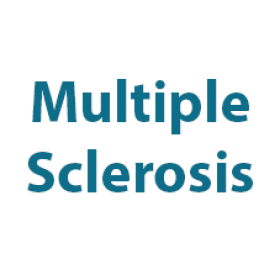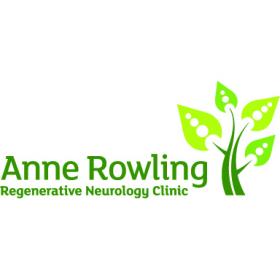Our research - Multiple Sclerosis (MS)



About MS
Multiple sclerosis (MS) affects approximately 100,000 people in the UK. Most people are diagnosed between the ages of 20 and 40, and it is twice as common in women as in men. Interestingly, it is more common in countries that are further from the equator. Scotland has one of the highest rates of MS in the world.
The symptoms of MS can be very variable, but might include numbness, vision problems, difficulties with walking and fatigue. Most often, the disease follows a relapsing-remitting course at first, during which the symptoms come and go.
MS is thought to be an autoimmune disease, in which the body’s immune system wrongly attacks the myelin (a fatty substance that forms an insulating layer around nerves) in the brain and spinal cord. It is likely to result from a combination of genetic ‘risk factors’ and environment or lifestyle ‘triggers’.
There is currently no cure for MS, but it is possible to reduce the number of relapses and improve symptoms using medicine, exercise and physiotherapy.
There are currently many treatments that can successfully dampen this inappropriate immune system attack on myelin, in early relapsing-remitting MS. However, we lack effective treatments to prevent or reverse the neurodegeneration that typically unfolds over time in MS and which causes increasing disability in progressive MS.
Our MS research
Edinburgh is a world-leader in MS research in both clinical and laboratory science. Our research spans from work to understand the fundamental biology of MS in cells right through to conducting clinical trials of new treatments. These are anchored by two closely connected research hubs, the MS Society Edinburgh Centre for Multiple Sclerosis Research and the Anne Rowling Regenerative Neurology Clinic.
MS Society Edinburgh Centre for Multiple Sclerosis Research
The MS Society Centre has been funded continuously by the MS Society since 2010.
Our researchers study how neurodegeneration occurs in MS, with a particular focus on the ways in which damage to myelin influences neuronal health. Importantly, the nervous system can regenerate myelin following its loss in disease, and our teams are working to find methods to improve this process (called remyelination), because it is often imperfect and becomes less efficient with age.
In parallel, our researchers study how neurons can be protected from damage and how their function might be restored. Our teams have expertise that span analyses of molecules and cells from MS tissue, human cell-based studies in a dish, zebrafish and mammalian animal models and live brain imaging in people with MS .
MS Society Edinburgh Centre for MS Research
Anne Rowling Regenerative Neurology Clinic
MS is a major focus of the research at the Anne Rowling Clinic. The Clinic was founded by author J.K. Rowling in memory of her mother Anne, who died of MS aged 45.
FutureMS is a Scotland-wide longitudinal study of 400 people diagnosed with relapsing-remitting MS. FutureMS aims to remove the uncertainty that a diagnosis of MS can bring, using clinical examinations, MRI brain imaging and genetic tests to gather information and ultimately develop a tool to predict how severe an individual’s MS will be.
Laboratory research at the the Clinic starts uses human stem cell models: using donated skin or blood cells from people with MS and 'reprogramming' the stem cells into living, functioning brain cells growing in a dish, which can then be used for experiments. Clinic researchers use the stem cell-derived brain cells in high-throughput drug discovery pipelines, with the aim of finding new drugs to test in clinical trials.
The Anne Rowling Clinic co-leads and participates in many national and international trials, including the MS Society Octopus trial, MS-STAT2, MS-SMART, DELIVER-MS and the International MS Microbiome Study.
Anne Rowling Regenerative Neurology Clinic
UoE researchers working in this area
- Rafael Almeida, Centre for Discovery Brain Sciences
- Mark Bastin, Centre for Clinical Brain Sciences
- Neil Carragher, MRC Institute of Genetics & Cancer
- Siddharthan Chandran, MS Society Edinburgh Centre for MS Research (Director)
- Tim Czopka, Centre for Clinical Brain Sciences
- Seth Grant, Centre for Clinical Brain Sciences
- Giles Hardingham, Centre for Discovery Brain Sciences
- David Hunt, Centre for Clinical Brain Sciences
- Josef Priller, Centre for Clinical Brain Sciences
- David Lyons, MS Society Edinburgh Centre for MS Research
- Don Mahad, Centre for Clinical Brain Sciences
- Veronica Miron, Centre for Discovery Brain Sciences
- Colin Smith, Centre for Clinical Brain Sciences
- Tara Spires-Jones, Centre for Discovery Brain Sciences
- Adriana Tavares, Centre for Cardiovascular Sciences
- Adam Waldman, MS Society Edinburgh Centre for MS Research
- Anna Williams, MS Society Edinburgh Centre for MS Research
- Joanna Wardlaw, Centre for Clinical Brain Sciences
Useful links
- MS Society Edinburgh Centre for MS Research
- Anne Rowling Regenerative Neurology Clinic
- MS Society UK

